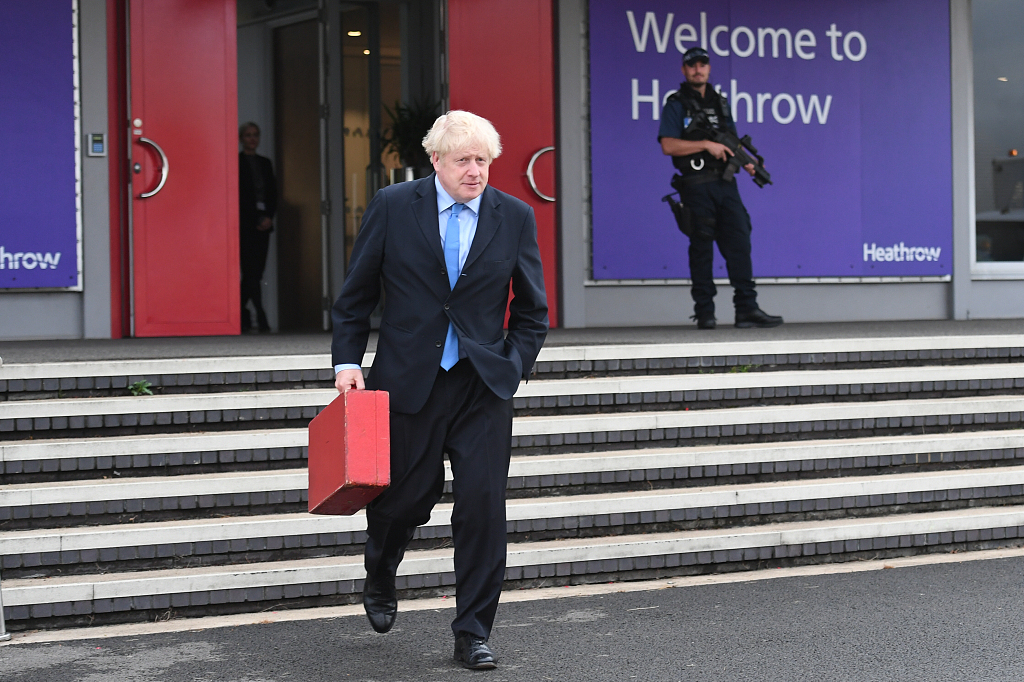The Supreme Court will decide on Tuesday on whether British Prime Minister Boris Johnson acted unlawfully in shutting down parliament in the run-up to the country's scheduled EU exit next month.
Britain's highest court will rule on the legality of Johnson's advice to Queen Elizabeth II to prorogue parliament for five weeks until October 14 – just a fortnight before Brexit day on October 31.
After three days of hearings last week, a spokeswoman said the decision would be made at 10:30 a.m. (0930 GMT), with seven of the 11 judges who were involved in the case set to attend.
Johnson, who took office in July, insists the decision to suspend parliament earlier this month was a routine move allowing his new government to launch a fresh legislative program.
But critics accused him of trying to silence MPs, most of whom oppose his threat to leave the European Union on October 31 without a divorce deal with Brussels.

UK Prime Minister Boris Johnson boards his plane at Heathrow Airport as he heads off for the annual UN General Assembly in New York, September 22, 2019. /VCG Photo
UK Prime Minister Boris Johnson boards his plane at Heathrow Airport as he heads off for the annual UN General Assembly in New York, September 22, 2019. /VCG Photo
A ruling in Johnson's favor would uphold the long-held principle that prorogation is solely a decision for the prime minister, not the courts.
But many fear that, in a country without a formal written constitution, it would establish a precedent that prime ministers could suspend parliament for long periods.
If Johnson loses, it is likely to prompt demands for parliament to be immediately recalled.
The High Court of England and Wales ruled earlier this month that the issue was indeed not "justiciable" but Scotland's top court concluded Johnson had acted illegally and that the prorogation should be declared null and void.
If the top court agrees the suspension was illegal, it could say that Johnson should recall parliament or that as the prorogation was unlawful, the legislature could simply be reconvened by its speakers.
"As we have heard, it is not a simple question and we will now consider carefully all the arguments that have been presented to us," Brenda Hale, the court's president, said at the end of the hearings on Thursday.
Source(s): AFP
,Reuters